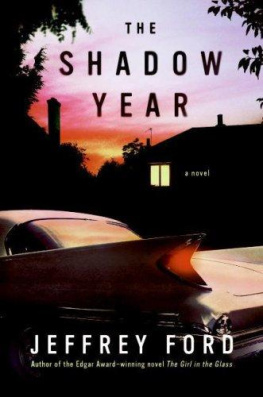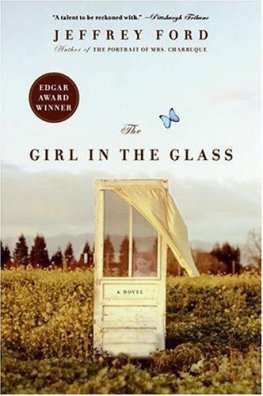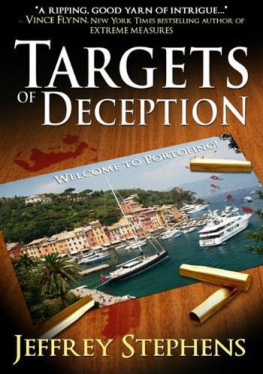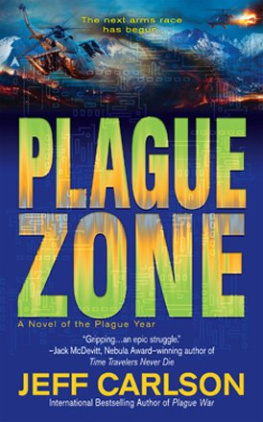Jeffrey Ford - Memoranda
Here you can read online Jeffrey Ford - Memoranda full text of the book (entire story) in english for free. Download pdf and epub, get meaning, cover and reviews about this ebook. genre: Romance novel / Prose. Description of the work, (preface) as well as reviews are available. Best literature library LitArk.com created for fans of good reading and offers a wide selection of genres:
Romance novel
Science fiction
Adventure
Detective
Science
History
Home and family
Prose
Art
Politics
Computer
Non-fiction
Religion
Business
Children
Humor
Choose a favorite category and find really read worthwhile books. Enjoy immersion in the world of imagination, feel the emotions of the characters or learn something new for yourself, make an fascinating discovery.

- Book:Memoranda
- Author:
- Genre:
- Rating:5 / 5
- Favourites:Add to favourites
- Your mark:
- 100
- 1
- 2
- 3
- 4
- 5
Memoranda: summary, description and annotation
We offer to read an annotation, description, summary or preface (depends on what the author of the book "Memoranda" wrote himself). If you haven't found the necessary information about the book — write in the comments, we will try to find it.
Memoranda — read online for free the complete book (whole text) full work
Below is the text of the book, divided by pages. System saving the place of the last page read, allows you to conveniently read the book "Memoranda" online for free, without having to search again every time where you left off. Put a bookmark, and you can go to the page where you finished reading at any time.
Font size:
Interval:
Bookmark:
Jeffrey Ford
Memoranda
For my mother, who taught me to dream
and my father, who taught me to work

1
In the years since completing a written account of the fall of the Weil-Built City, which told of my personal transformation from Physiognomist to humble citizen and the inception of this once idyllic settlement of Wenau, I never again thought it would be necessary to put pen to paper, but after what has occurred in the past few weeks, I must warn my unsuspecting neighbors. There is a demon loose in paradiseone that beguiles by resurrecting the past. Its victims grow cold to the world, desiring only yesterday, as their souls dissipate for want of exercise in the here and now. Memories swarm about me, every bit as real as the day, and I will attempt to trap them here in this manuscript, like slapping shut the lid on a box full of bees. Then I'll flee northward in order to lose myself in the vast wilderness of the Beyond. It would be a false assumption to think that because I write this with my own hand, in the past tense, that I came through these adventures in possession of my life. Death, it seems, has many definitions.
It was not long after the settlement was founded that the marketplace at Wenau developed into quite a bustling center of trade. The citizens of our new community no longer merely bartered among themselves but also attracted farmers from Latrobia, which lay a considerable distance to the east. River people from as far south as the villages at Constance occasionally arrived on their barques loaded with handwoven cloth, spices, homemade fishing gear, which they hoped to deal for fresh game and vegetables. Our people became adept at gathering and harvesting food, but the items the outsiders wanted more than any others were those mementos of technology we had taken away with us from the destruction of the Well-Built City.
Something as useless as a single brass gear could be traded for a blanket of the highest quality. The river people wore these remnants as amulets of power on cords around their necks. Little did they know how pleased we were to be rid of them. Everything balanced in the end, though, and there were no squabbles or accusations of thievery. The outsiders, having lived closer to the land for longer, were much rougher than we, but they adopted our peaceful ways. This location we chose for our settlement, nestled between two crisscrossing rivers, engendered its own spell of calm.
I went to the market once a week to trade medicinal herbs, roots, and tree bark I collected from the fields and forestsa practice taught to me by Ea and his son before they left for the Beyond. It was on those days that I also met my neighbors and took appointments to visit the women who were carrying children. Ever since delivering Aria's daughter, word had gotten about that I was an effective midwife, and, because of this, I was in some part responsible for the births of at least fifteen children. My acquired role as that of a healer of sorts pleased me, and I hoped that in the hypothetical ledger of my life it would offset somewhat the harm I had previously done.
A few weeks ago, I carried with me to the market something I never before would have thought of tradinga certain piece of green fabric, the veil left to me by Aria. For years, it remained both a bothersome mystery and a great comfort. On those nights when loneliness surrounded me, I would take it out of the chest beneath my bed and hold it fast for the peace it offered. At other times, I would actually speak to it, as if her face still hid beneath, trying to get an answer as to her reason for having left it with me. I often wondered if it was a sign that she had forgiven me or if it was meant to remind me of my guilt.
The night before my trip to the market, I was called on to deliver a child. All went well as far as the mother's health was concerned, but the baby came forth stillborn. I worked for over an hour to try to revive him, knowing soon after I began that my efforts would probably be hopeless. No one blamed me for this tragedy, and, surprisingly enough, though I felt bad, I could not even blame myself. On my walk home through the night, I stopped to look up at the immensity of the starlit sky and for some reason, I still cannot say why, I suddenly felt released from my responsibility to the past. The thought leaped into my mind, "Cley, you will trade away that green veil. It will not do to simply dispose of it. No matter how meager the material worth of the item you trade it for, you must find someone who wants it."
The market was crowded the following day with haggling traders, children at play, and the old, entertaining with comic and cautionary tales. I carried my sack of medicines thrown over my left shoulder and wove my way amidst the practical confusion of the place, searching out likely patrons.
At first, I went about my business, selling what I could. People knew me well and knew that my medicines were genuine. They described complaints to me, and I would tell them exactly what they might use to alleviate their suffering. After making a few trades for thread and fish-bone needles, salt and powdered orian (a bean from the south that when mixed with boiling water made a beverage that was a dull imitation of shudder), I took out the green veil and began trying to trade it.
Those I approached were as polite as usual, but I could tell they remembered the purpose that it had once served and were reluctant to even gaze at it. Although Aria had been gone for years, she remained a mythical figure to the inhabitants of Wenau. The legendary horror of the face that green cloth once masked, its death-dealing power, was too much for them to overcome. I might just as well have been trying to barter a winding sheet stripped from one of their relatives.
Jensen Watt, the owner of the stills that brewed a form of alcohol that was known as field beer, and a good friend of mine, came over to me and put his arm around my shoulders.
"Cley," he said. "No need to trade such a personal item as the veil. What do you need? I'll send it over to your place before the sun goes down."
"I need to trade this veil" I said.
"You delivered my daughter, for which you asked no payment, and I still owe you from our last card game, but even I wouldn't take it off your hands. You're spooking the entire marketplace by waving that thing around."
"I can't keep this ghost in my house anymore," I told him.
"Tie a stone in it and toss it in the river," he said.
I shook my head. "I must find someone who wants it."
He took his arm off me, leaned back, and raked his fingers through his beard. "Bring it over to my stall. I have six Latrobi-ans there drinking off the price of a mule I borrowed from them last spring. One of them might be drunk enough to trade a trifle, not knowing the story behind it."
I thought this was a sound suggestion, but we never made it to Watt's makeshift tavern, for as we set out across the marketplace, some slight commotion could be heard among the traders at the different stalls. "Look, look," I heard quite a few of them say. I wondered for a moment if they were reacting to the sight of the veil, which I still held in my left hand, but when I turned around, I saw that they were pointing upward at something overhead.
It came circling down from a great height in an ever-diminishing gyre. The wingspan must have been five feet across, and, though its features bore some resemblance to a giant crow, it shone brightly, reflecting the sun from metallic wings. Silence swept through the marketplace as everyone gathered close to the point where it was evident it would land. With perfect mechanical grace, it glided silently down to perch with chrome talons atop a six-foot flagpole that stood at the center of the market.
Font size:
Interval:
Bookmark:
Similar books «Memoranda»
Look at similar books to Memoranda. We have selected literature similar in name and meaning in the hope of providing readers with more options to find new, interesting, not yet read works.
Discussion, reviews of the book Memoranda and just readers' own opinions. Leave your comments, write what you think about the work, its meaning or the main characters. Specify what exactly you liked and what you didn't like, and why you think so.









